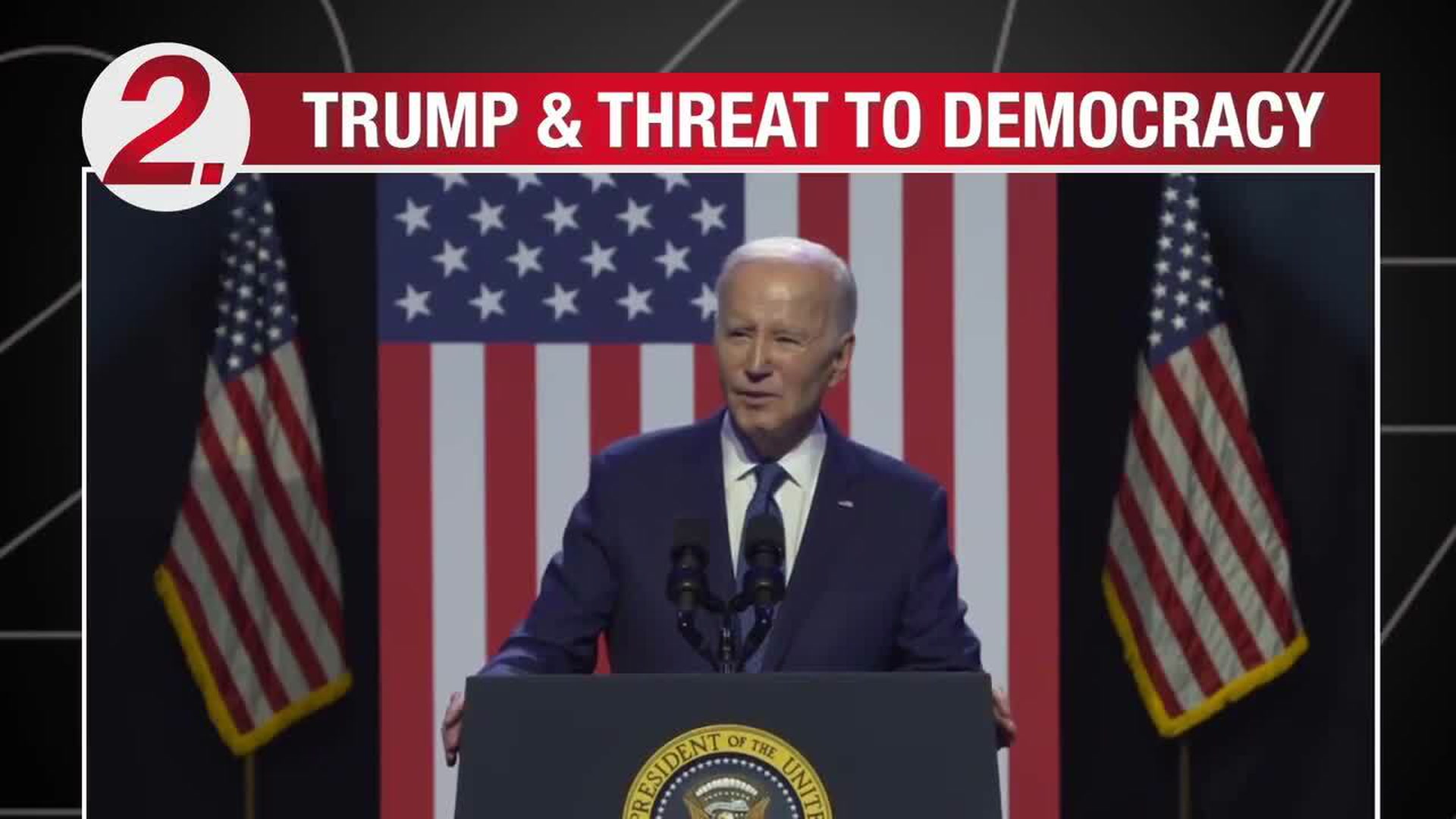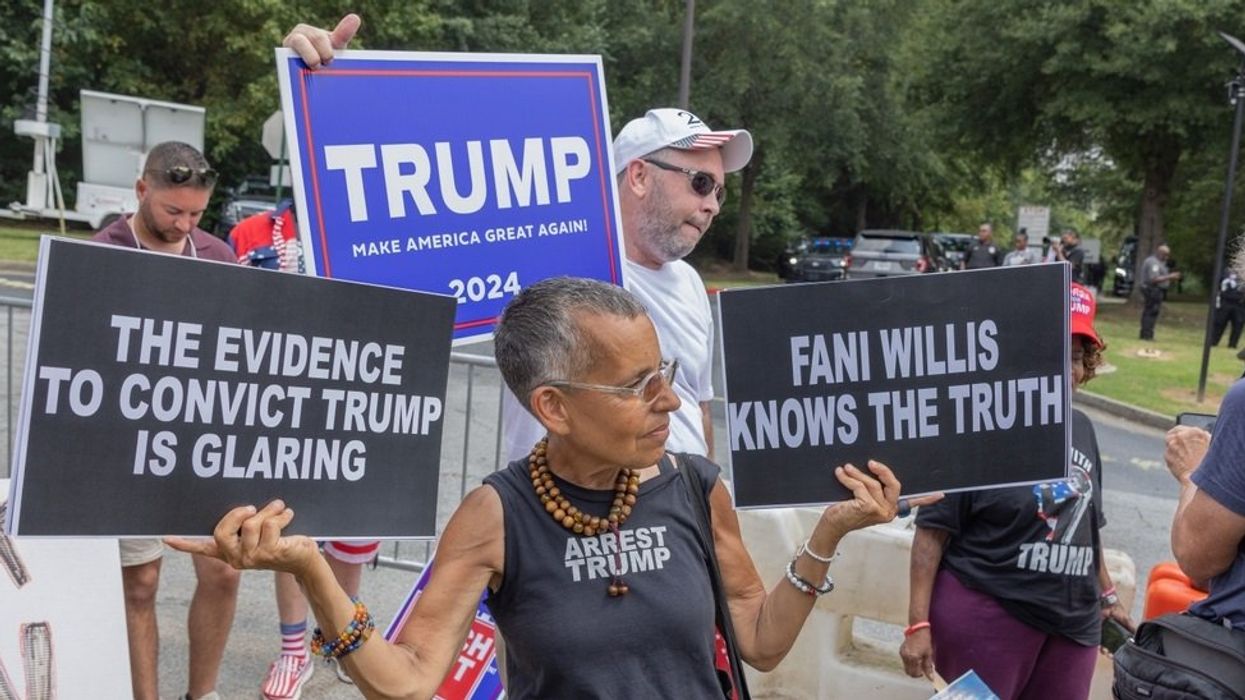(CNN) — Editor’s note: Bruce A. Green is the Louis Stein chair at Fordham Law School, where he directs the Stein Center for Law and Ethics. He is a former federal prosecutor in New York. The opinions expressed in this commentary are solely his own. View more opinion on CNN.
The Georgia prosecutor who brought the 2020 election interference case against former President Donald Trump and 18 co-defendants is facing an allegation of having a romantic relationship with the man she appointed as a special prosecutor in the case. One of the co-defendants, Michael Roman, a campaign official for Trump in 2020, has asked a judge to remove Fulton County District Attorney Fani Willis and special prosecutor Nathan Wade from the case, asserting that the two prosecutors have an impermissible conflict of interest due to an “improper” relationship.
Neither Willis nor Wade has directly addressed the allegations. Speaking publicly for the first time after the accusations emerged, Willis told the congregation at Atlanta’s Big Bethel AME Church on January 14 that Wade was a “legal superstar” and “a great friend and a great lawyer.” Fulton Superior Court Judge Scott McAfee has scheduled a hearing on the matter for February 15, and prosecutors have been instructed to file a written response to the allegations by February 2.
While Willis may have engaged in nepotism in appointing Wade to lead an important prosecution, it seems doubtful that any of the defendants have a legitimate cause to complain.
Prosecutors have considerable power and discretion, which they should exercise in a disinterested fashion. To the extent possible, they should avoid prosecuting cases in which they have a significant personal interest at stake.
In extreme cases, such as when prosecutors have an ax to grind against a defendant because of self-interest or a relationship, or because the prosecutor will benefit financially from decisions made in the case, courts have authority to replace the prosecutor with a disinterested lawyer. (If Willis were disqualified, the case would go to the Prosecuting Attorneys’ Council of Georgia, which would then decide on a new prosecutor.)
For example, the Supreme Court has held that when a party violates a federal court order to stop infringing a company’s copyright, the company’s lawyer may not be appointed to prosecute the infringer for contempt of court. That lawyer, being beholden to the victim, would not be sufficiently disinterested and would be likely to treat the defendant too harshly.
As New York Law School professor Rebecca Roiphe and I have previously written however, courts rarely remove prosecutors based on a conflict of interest because as professionals, prosecutors are able to put self-interest and personal preferences to the side except in extreme cases. For example, a Republican prosecutor can be trusted to investigate or prosecute a Democratic president (as in the case of Ken Starr and President Bill Clinton), notwithstanding political preferences that in theory might bias the prosecutor against the accused.
An elected prosecutor who works daily with a police department can investigate allegations of police misconduct, notwithstanding an interest in maintaining good relations with the police department. The law presumes that prosecutors will overcome their biases.
In the Georgia prosecution of Trump and his co-defendants, an alleged romantic relationship between two top prosecutors seems to be even less of a problem, as far as disinterested prosecutorial decision-making is concerned, than the alleged conflicts of interest that courts ordinarily overlook.
The prosecutors’ relationship, if confirmed, has little, if anything, to do with their attitude toward the defendants; it may have affected Willis’ initial decision to appoint Wade, but beyond that, it has no logical impact on how they are making decisions in the case. Whatever affection the prosecutors may have for each other would not lead them to treat any of the defendants too harshly — it does not give them an ax to grind. Nor, for that matter, would it lead them to treat the defendants too leniently.
In a court filing, Roman asserted that Willis appointed Wade not because he was the best lawyer to serve as special prosecutor, but because of her affection for him. If so, such an appointment does not explain why either Willis or Wade might treat the defendants unfairly or abuse their authority in the criminal case.
Wade answers to Willis, but there’s nothing in the fact of a relationship that would prejudice him against a defendant. Ditto Willis: Her fondness for Wade wouldn’t affect her exercise of discretion regarding the defendants. (Four of the 19 defendants in the Georgia case have pleaded guilty, while Trump and the rest have maintained not guilty pleas.)
If anyone has the right to complain, it is not the defendants, but the county and the public. Willis may have engaged in nepotism (as when President John F. Kennedy appointed his brother Robert Kennedy to be US attorney general or when Trump appointed his daughter Ivanka Trump and son-in-law Jared Kushner to positions in his presidential administration).
Willis may have picked Wade not (or not only) because he is a terrific trial lawyer but because of her personal affection for him. If so, she may have violated state or local anti-nepotism or conflict of interest laws.
Indeed, Fulton County Commissioner Bob Ellis, a Republican, has raised questions about whether Willis misused county funds for her benefit after allegations emerged in Wade’s divorce proceedings that he paid for airline tickets for Willis to accompany him on out-of-state trips. Wade has earned more than $650,000 from the case over the past two years, according to Roman’s court filing. In a letter to Willis, Ellis also asserted that Wade lacks “relevant prosecutorial experience in a case of this type and complexity.”
Republicans at both the state and national levels are investigating the allegations. House Republicans are asking Wade to turn over any communications with federal investigators, the House January 6 committee and other executive branch agencies, including the White House. A state senator has filed legislation to create a special panel to investigate Willis.
Of course, if the allegations are true, Willis’ selection of Wade would be a colossal misjudgment, even if she violated no state or local law. Such a misstep would raise questions about the quality of Willis’ judgment in general. By appointing Wade, she may have turned a personal relationship into a personally embarrassing public issue in a high-profile criminal case. And she would be handing the defendants an issue to raise in a pretrial motion that, regardless of how it is decided, would delay the proceedings. Surely, there was at least one other skillful trial lawyer in Georgia who could have been appointed, thereby avoiding these problems.
But the judge should not linger over Roman’s motion, because the defendants have no legal reason to complain to the court or to seek some sort of judicial remedy such as removing the prosecutors. If Willis had picked a less-than-capable lawyer, which seems unlikely, the defendants would be beneficiaries of her misjudgment, not victims of it. They cannot plausibly claim that they are being prosecuted unfairly on account of the prosecutors’ alleged relationship with each other, whatever it may turn out to be.
The-CNN-Wire
™ & © 2024 Cable News Network, Inc., a Warner Bros. Discovery Company. All rights reserved.
Trump's threat to democracy

Video Source: Advocate Channel

















































